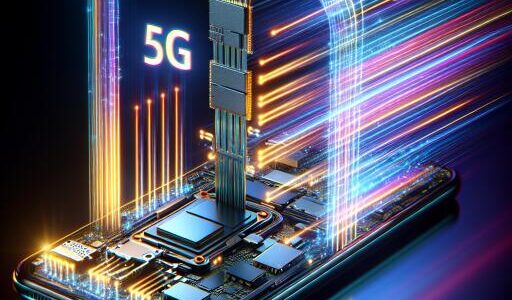N. Korea Embraces Advanced Technologies Amidst Global Tech Race
In a notable shift towards embracing the technology underpinning the Fourth Industrial Revolution, North Korea is exploring the advanced realms of artificial intelligence (AI) and other cutting-edge technologies. Sources indicate a growing interest from Pyongyang in harnessing these innovations to bolster various sectors, from education to agriculture.
As reported by the nation’s leading publications, there is a global race underway to dominate in science and technology. This competition has led to significant advancements in digital learning, with artificial intelligence finding applications in educational programs. Moreover, immersive technologies like virtual reality (VR) and augmented reality (AR) are increasingly becoming tools for transformative learning experiences.
It was highlighted in an announcement from the Korean Central Broadcasting Station that various countries are leveraging AI to significantly enhance agricultural output. This push towards technologically driven cultivation methods reflects a broader trend towards increasing efficiency and productivity in the sector.
Further evidence of North Korea’s digital ambitions came with the broadcast of a segment on Korean Central Television showcasing a VR-based educational platform. This program, designed to immeran educated audience about the rich history and culture of the Korean peninsula during the third and fourth centuries B.C., underscores the potential of VR in enriching educational content.
North Korea’s evident interest in global technological trends signifies an attempt to expand the applications of advanced tech within its borders. Whether it’s enhancing agricultural practices or revolutionizing the educational landscape, these advancements showcase a commitment to adopting Fourth Industrial Revolution technologies.
However, the utilization of these technologies extends beyond civilian applications. It appears there are intentions to adapt Fourth Industrial Revolution advancements for military uses as well. Insights from a research fellow at the James Martin Center for Nonproliferation Studies suggest North Korea’s application of AI and machine learning extends into military strategy, including wargaming and surveillance tactics. These developments hint at a digital strategy that intertwines with the nation’s defense and intelligence activities.
The research highlighted the potential of AI and machine learning in crafting simulations for military scenarios, specifically at the tactical level with applications like artillery shell maneuvers. This raises important considerations regarding the transferability of AI/ML technology, emphasizing the need for vigilance in monitoring North Korea’s technological ventures. It suggests a necessity for the global community, particularly those within academic and private sectors, to be cognizant of the implications of sharing such technologies, which could inadvertently contribute to the enhancement of military capabilities through sanctions evasion or other means.
As North Korea continues to navigate its path through the intricacies of the Fourth Industrial Revolution, the international observation of its technological progression remains crucial. This journey reflects not only the aspirations of a nation to modernize through technology but also posits significant questions about the dual-use nature of these advancements and the global responsibility in managing technological proliferation.









